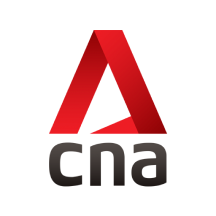
By Promit Mukherjee
OTTAWA (Reuters) - Canada's annual inflation rate rose 1.9% in August as gasoline prices on a yearly basis fell at a slower pace than in the previous month and food prices were up slightly, data showed on Tuesday.
The annual inflation rate has been largely distorted by the cancellation of the carbon levy on gasoline sales, which has helped bring down the cost of the fuel on a yearly basis, and economists have focused on core inflation measures to gauge the trend of prices.
On a monthly basis, the Consumer Price Index was down 0.1% in August, Statistics Canada said.
Analysts polled by Reuters had forecast the annual inflation rate would be 2% in August, up from 1.7% in July. On a month-over-month basis it was expected to increase 0.1%, from 0.3% in the prior month.
BANK OF CANADA LIKELY TO CUT RATES
The lower-than-expected rise in inflation is likely to bolster chances of an interest rate cut on Wednesday by the Bank of Canada, even though there are concerns that underlying inflation is still high.
Money markets are expecting more than a 97% chance of a 25-basis-point rate cut on September 17.
"Inflation remained largely unthreatening in August, making the expected Bank of Canada interest rate cut tomorrow a relatively easy decision," said Andrew Grantham, senior economist at CIBC Capital Markets.
"With core measures of inflation likely to cool further in the months ahead thanks to the slack building up in the economy ... we not only expect a 25-bp cut tomorrow but also a further reduction at the October meeting."
The Canadian dollar was trading up 0.13% after the inflation data to 1.3761 to the U.S. dollar, or 72.67 U.S. cents. Yields on two-year government bonds were up 1.1 basis points to 2.507%.
The BoC has kept its benchmark policy rate at 2.75% since March, but a slew of data in the last few weeks has propped up the case for restarting the rate-reduction cycle.
Gasoline prices were the biggest contributor to the rise in inflation in August, rising 1.4% on a monthly basis. On a yearly basis, the price of that fuel dropped 12.7% in August, compared to a 16.1% decline in July, the statistics agency noted. This drop helped lower transportation costs by 0.5% in August.
Excluding gasoline, the CPI rose 2.4% in August, after increasing 2.5% in each of the previous three months, StatsCan said.
One of the core measures of inflation, the CPI-median, or the centermost component of the CPI basket, mirrored the prior month's 3.1% rise in August. The other core measure, CPI-trim, which excludes the most extreme price changes, fell to 3% from 3.1% in July.
The share of the CPI basket that was above 3% rose to 39.1% in August from 37.3% in July, indicating resilient underlying inflation.
The price of shelter, which accounts for almost 30% of the CPI basket, rose 2.6% in August, from 3% in July, as mortgage and rental costs eased.
Food prices climbed 3.4% in August as meat prices rose 7.2% on a year-over-year basis, following a 4.7% increase in July, StatsCan said.
(Reporting by Promit Mukherjee; Additional reporting by Divya Rajagopal and Fergal Smith; Editing by Dale Smith, Sharon Singleton and Paul Simao)

 Reuters US Economy
Reuters US Economy
 Associated Press US News
Associated Press US News The Baltimore Sun
The Baltimore Sun People Books
People Books KLKN-TV Lancaster County
KLKN-TV Lancaster County Charleston Gazette
Charleston Gazette Corpus Christi Caller-Times
Corpus Christi Caller-Times CNA Entertainment
CNA Entertainment New York Post
New York Post Reuters US Domestic
Reuters US Domestic TODAY Pop Culture
TODAY Pop Culture